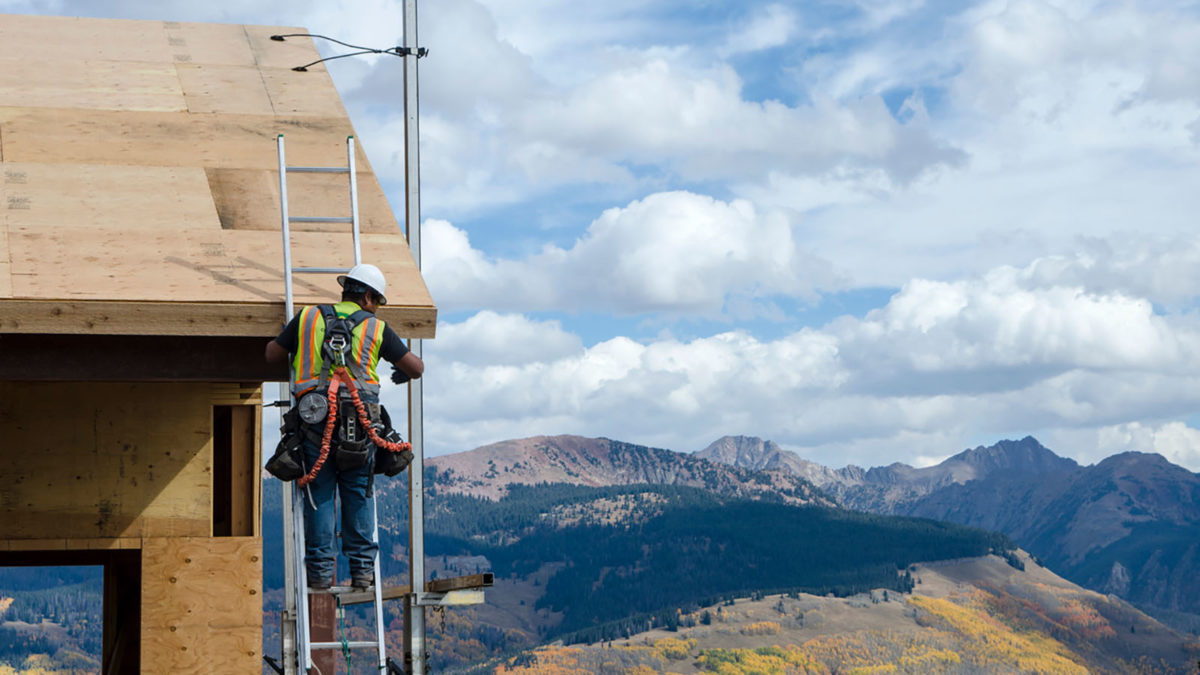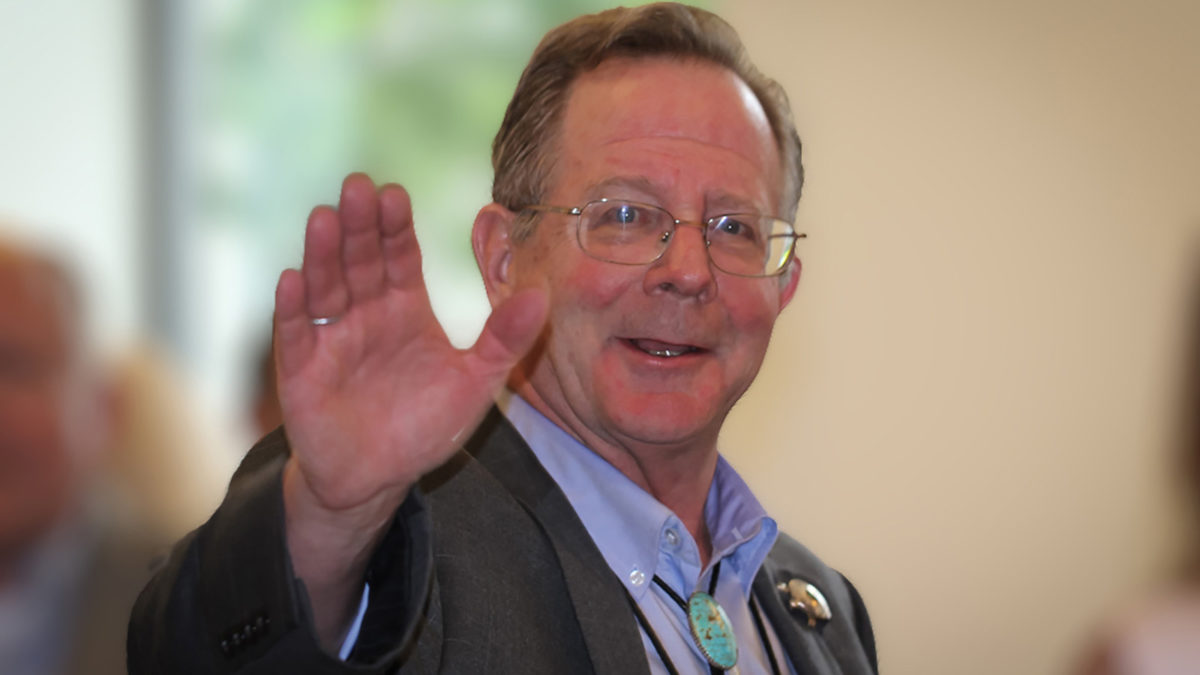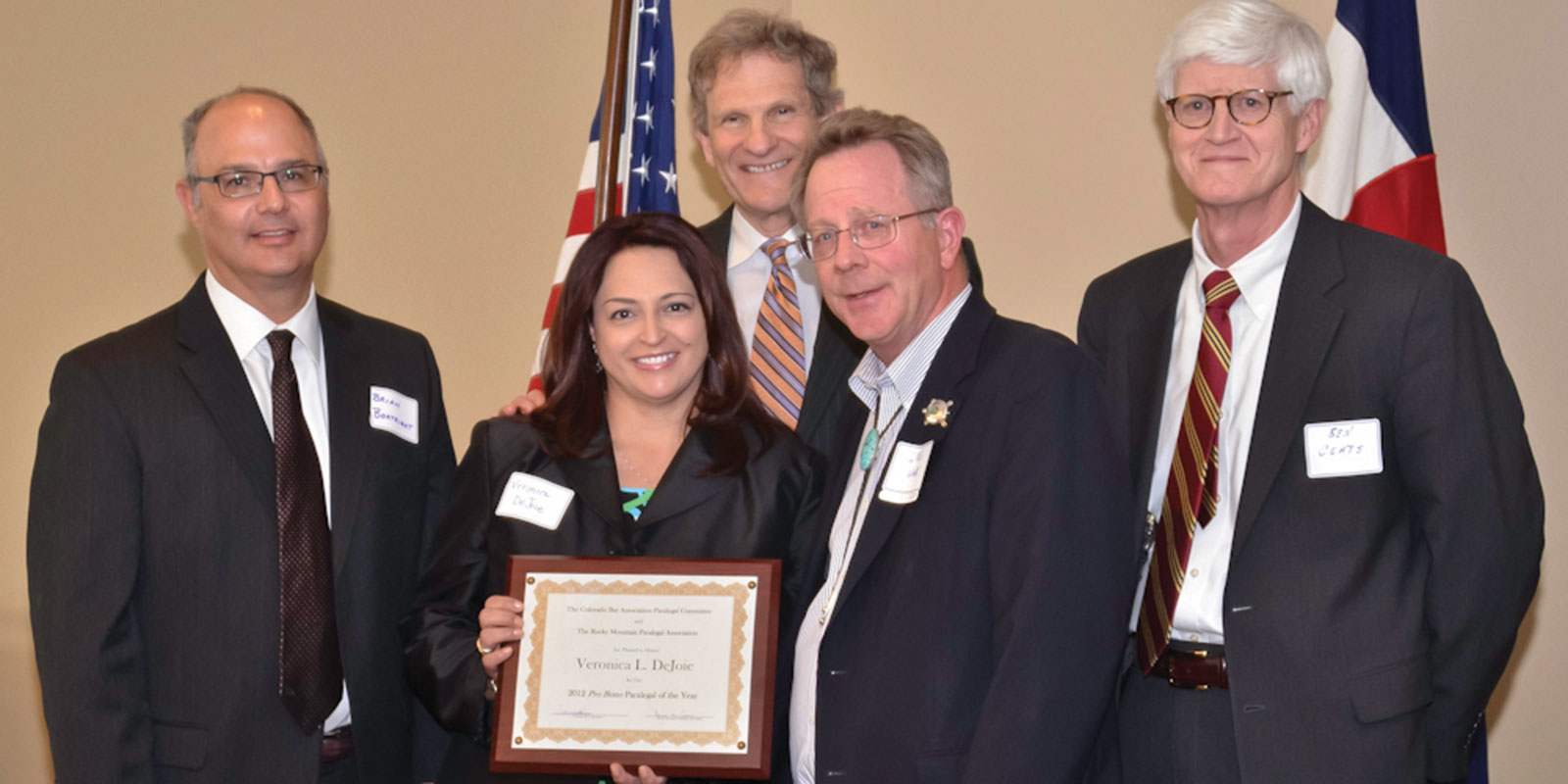
Justice Gregory Hobbs
Relentless Advocate for Access to Justice
February 2022
Download This Article (.pdf)
Former Colorado Supreme Court Justice Gregory Hobbs was famous for his poetry and photography, his bolo ties, and his love of the water. But he will also be remembered as a visionary and a quiet pioneer whose relentless energy and tireless commitment to access to justice fundamentally transformed the state’s legal landscape. Justice Hobbs understood that “[a]ccess to justice is the single most compelling reason for a legal profession,” and he dedicated himself to spreading that message.
Birth of the ATJ Commission
One of the lasting results of Justice Hobbs’s dedication to this mission is the existence of Colorado’s Access to Justice Commission (ATJC). The ATJC, established in 2003, was one of the first in the country. Justice Hobbs recognized the need for a statewide entity committed to promoting measures that would increase the ability of people of limited means to access the justice system.
He also understood it was essential for the ATJC to be independent—not a creature of the Supreme Court, the General Assembly, Colorado Legal Services, or the Colorado Bar Association, but instead a partnership reflecting the commitment of each of these entities to improving the legal system. “This vision of independence but connection was always really important for him,” explains former ATJC chair Fred Baumann. “He knew the Commission had to be an independent place of synergy to be most effective.”
Justice Hobbs’s approach to creating the ATJC was emblematic of his strategic approach to a range of access to justice solutions. He was, as Commissioner Emeritus John Zakhem recalls, the “first true champion on the Colorado Supreme Court for increasing access to justice,” and he understood that lasting change requires effective partnerships and community support.
Shaping Pro Bono Policy
With that understanding, Justice Hobbs led a wave of rule changes that opened up new opportunities for attorneys to provide pro bono representation to people who could not afford to pay for legal advice. His advocacy was instrumental in the Colorado Supreme Court’s decision to (1) authorize limited scope representation through Colorado Rule of Professional Conduct (Rule) 1.2, allowing lawyers to provide unbundled services; (2) establish Rule 6.5, which makes it possible for attorneys to participate in pro bono clinics without fear of unanticipated conflicts; (3) permit attorneys to receive up to nine CLE credits for doing supervised pro bono work under CRCP 250.9(2); and (4) allow emeritus attorneys to provide pro bono services without the expense of maintaining an active license under CRCP 204.6.
While these rule changes expanded the mechanisms available for attorneys to provide pro bono representation, Justice Hobbs realized that a true expansion of pro bono services would also require something to incentivize busy lawyers to give their time. This understanding led to the creation of his most memorable innovation—the Colorado Supreme Court’s Pro Bono Recognition program. In 2005, Justice Hobbs persuaded his colleagues that the Court should adopt this program—the first of its kind in the country—to publicly recognize those law firms (private, solo, in house, and government) that commit to an annual average goal per lawyer of 50 hours of pro bono service and agree to value those hours for all purposes the same way compensated work is valued.
In connection with this program, Justice Hobbs proposed adding, as an appendix to Rule 6.1, a model pro bono policy that law firms could adopt to encourage and recognize their attorneys’ pro bono work. Colorado is still the only state in the country with such a policy, and the policy is more than just a model. Twenty years ago, few if any Colorado law firms had formally established pro bono policies. Today, most of the bigger firms have adopted such policies. Lauren Schmidt, the former pro bono partner at Brownstein Hyatt Farber Schreck and a former ATJC Commissioner, remembers well the moment that Justice Hobbs sat down with the managing partner of her firm to discuss the importance of pro bono work. “It was a pivotal moment that ultimately led to the creation of the pro bono partner position and a four-fold increase in the number of pro bono hours.”
Persistence Pays Off
That visit to Brownstein was one stop on Justice Hobbs’s legendary “17th Street walk.” He gathered a team of judges, including former Court of Appeals Judges Dan Taubman, Gale Miller, and now-Justice Rich Gabriel, and together they set out to convince Colorado’s law firms to take the Supreme Court’s pro bono pledge. Even the busiest of managing partners was hard-pressed to turn down a visit from this group, and many responded to what Justice Monica Márquez describes as Justice Hobbs’s “not–at-all shy arm twisting to get on board with the pro bono recognition project.” Justice Gabriel recalls the visits with a grin: “After the polite hellos, he would launch in with a presentation that generally started with ‘you should be on this list. You need to be on this list. I was very surprised to see you not on this list.’ He meant it, and his passion was generally quite contagious!”
In the first year of the Pro Bono Recognition Program, 34 firms met the 50-hour per lawyer pro bono goal. By 2020, that number had risen to 105. As Connie Talmage, executive director of the Colorado Lawyers Committee and former ATJC chair says, “Justice Hobbs changed the culture around pro bono services in Colorado. He transformed the legal community not just by telling lawyers and firms what to do but by giving them a mechanism to do it.”
Justice Hobbs shaped the Pro Bono Recognition Program not only through his personal recruiting but also by bringing to it his love of the whole state of Colorado and its diverse communities. Gail Rodosevich, the coordinator of pro bono projects at the Pueblo office of Colorado Legal Services, recalls when Justice Hobbs reached out to her to ask what he could do to support pro bono work in the Pueblo community. “I told him attorneys wanted to be recognized on their own turf with their local peers and not in Denver. He readily agreed to come to Pueblo, and he did it every year until he retired.” Justice Hobbs did the same in other communities around the state, making the Pro Bono Recognition Program a truly statewide effort.

Commitment to Community
Fundamentally, Justice Hobbs approached the challenges of the justice gap with his wholehearted belief that we have a responsibility to take care of each other and to take care of marginalized communities. He lived that belief every day and, as Colorado Legal Services Executive Director and ATJC Commissioner Jon Asher observed, “His persuasion with lawyers was in his conviction. He did not need to be loud to be effective. Greg Hobbs tried to always stand for what was right and for doing the best that he could. And we are all better off for it.”


